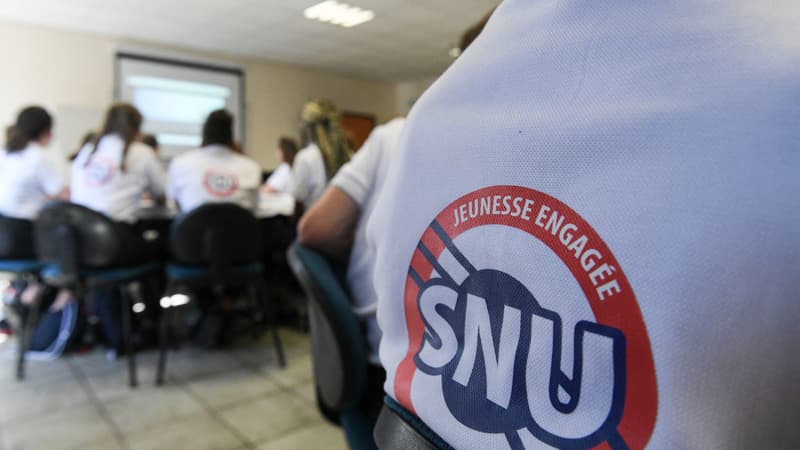“Uncertain” objectives, “very underestimated” costs, “difficulties in implementation”: the Court of Auditors on Friday harshly assessed the Universal National Service (UNS), a system dear to Emmanuel Macron, five years after its launch. “More than five years after its launch, its objectives remain uncertain and therefore little understood by the general public, in particular by young people who are nevertheless its target,” wrote the Court in a report published on Friday.
The UNS, a campaign promise by the Head of State, was launched in 2019 with the aim of making it compulsory for an entire age group (around 800,000 young people per year). It includes a “general interest mission” and a “cohesion stay” that includes sporting, cultural and intellectual activities, with days beginning with the “raising of the colours” (flag and national anthem) and the wearing of the uniform. So far, it is only a matter of young volunteers between 15 and 17 years old.
The Court particularly regrets that “in terms of diversity and social engagement, the ambitions of the system have not been achieved”. “The backgrounds of the young participants have been characterised, since 2019, by an overrepresentation of young people whose parents serve or have served in the uniformed corps and in more favoured socio-professional categories”, it writes.
“10 billion euros”
In January, former Prime Minister Gabriel Attal announced the start of “work” with a view to generalising the SNU “at the start of the 2026 school year”. Mentioned several times in recent months, it has met with strong resistance. Since March, this system has been integrated into the school schedule, with twelve-day internships for second-year pupils, who are volunteers.
The report also analysed the cost of the UNS. It highlights “a system without budgetary management” and whose cost is “very underestimated”. “The estimated cost of the UNS in its current configuration and generalised to an entire age group (i.e. around 850,000 young people) is 2 billion euros”, it points out, but “it does not even correspond to an assessment of the overall cost of the UNS”. the system for public authorities.
The annual cost of running the system as a whole is estimated to be between 3.5 and 5 billion euros, according to the report. To this figure must be added “6 billion euros of investment in building centres, not counting the costs borne by local authorities” which could not be quantified. “We are looking at orders of magnitude exceeding 10 billion euros,” said Pierre Moscovici, the first president of the Court of Auditors, during a press conference.
In 2023, a Senate report estimated that the cost of the UNS could increase by “between 2.4 and 3.1 billion euros per year”, as mentioned in a 2018 general inspection report. This report even recommended “suspending” this project.
“Multiple difficulties”
The Court of Auditors also mentions “many difficulties” in the “deployment” of the UNS, in particular in the “identification of accommodation facilities that can accommodate minors while respecting the widths provided for by the specifications, the conditions of employment” or even the “remuneration of supervisors, the transport of young people to and from the centres”.
The Court of Auditors therefore proposes to “clarify the objectives of the system and to establish its evaluation methods”, to “create the conditions for ministerial and administrative management adapted to the ambitions of the system” – in reference to National Education, the Armed Forces and Public Accounts – or even to “give the system a legal basis that allows its expansion”.
In a document attached to the report, the Ministry of National Education maintains that “the objectives of the UNS are perfectly clear and known from the beginning and remain unchanged: to form a Nation, to strengthen social cohesion, to offer a path of commitment for young people. “In addition, first results have been obtained in terms of social and geographical diversity, in particular thanks to the new system of ‘committed classes and secondary schools’ implemented from 2024,” the ministry said.
For its part, the Ministry of the Armed Forces admits “the need to clarify its objectives (of the UN, editor’s note) and create the conditions for ministerial and administrative management adapted to the government’s ambitions.”
Source: BFM TV


